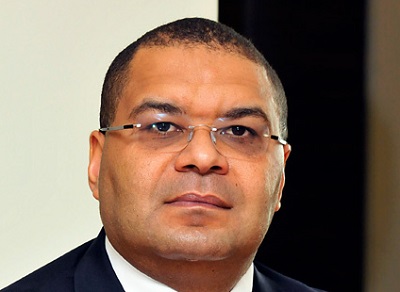E-Financial
AFC Gets First International Credit Rating Moody’s Aassigns A3/P-2

The Africa Finance Corporation (AFC) a multilateral development financial institution headquartered in Lagos, has secured its first International credit rating from Moody’s Investors Service (Moody’s).
Moody’s has assigned the Corporation an A3 (long term) /P2 (short term) foreign currency debt rating, making the AFC the second highest investment grade rated multilateral financial institution on the African continent.
Moody’s rationale for this investment grade rating is based on a sound capital adequacy position, high asset quality and strong prudential framework that supports a high degree of liquidity, supported by an excellent profit margin and profit retention.
Additionally, the Corporation’s strong liquidity framework and position which is in excess of the requirements of Basel III Capital Accord on liquidity risk management, will mitigate against external economic shocks, and help support planned growth. The outlook on the rating is stable.
AFC was established in 2007 as a private sector-led Pan African multilateral development finance institution, with an initial capital base of USD1.1 billion, to be a catalyst for private sector infrastructure investment across Africa.
AFC was established to help fill a critical void in providing project structuring expertise and risk capital to address Africa’s infrastructure development needs.
AFC not only provides access to finance, deal structuring and sector technical expertise, but also advisory services, project development capacity, and funding to bridge the infrastructure investment and access deficits, in the core infrastructure sectors of power, natural resources, heavy industry, transport and telecommunications, all critical pillars for economic growth across Africa.
Commenting on the International rating, Andrew Alli, president & chief executive officer, AFC said “attaining an investment grade International credit rating, only six years after inception, is a tremendous achievement. It is a major milestone in the Corporation’s history. This rating, together with AFC’s strong capital position and the quality of its portfolio, will enable AFC to grow its balance sheet, broaden its asset base and expand its geographical footprint. It is a further endorsement of the Corporation’s rigorous investment process, innovative approach to infrastructure investment on the continent, world-class corporate governance and solid shareholder support. The Corporation is poised to assist in further driving economic growth and industrial development in Africa. We are extremely pleased with the rating.”
E-Financial
Gambaryan, Binance Executive Leaves Company after 8-Month Detention in Nigeria

Gambaryan, Binance Executive Leaves Company after 8-Month Detention in Nigeria
Tigran Gambaryan, Binance executive, is leaving the exchange after four years of service, eight months of which were marked by detention in Nigeria for money laundering allegations.

Tigran Gambaryan, Binance executive Pix created by photogrid
Gambaryan, praises Changpeng Zhao’s commitment to building a stronger compliance framework.
Having been cleared of all charges, Gambaryan’s departure from Binance marks the end of a tumultuous chapter for both him and the company.
Earlier yesterday, Tigran Gambryan shared an X post, announcing his departure from Binance. He wrote, “Today is my last day at Binance, marking the end of a chapter I’m deeply proud of.”
In a heartfelt farewell, Gambaryan reflected on his four-year tenure at Binance, where he built and led the company’s global investigations function.
Addressing founder Changpeng Zhao, he praised his commitment to building a stronger compliance framework. He noted,
“[CZ] was committed to bringing in experienced leadership to help the company engage more constructively with law enforcement. His support for our mission never wavered, and I’ll always be grateful for the trust he placed in me and the team.”
Further, he highlighted the team’s notable achievements during his tenure. Notably, the team handled over 57,000 law enforcement requests and provided critical support in cases involving financial crimes. He has also led the training of thousands of officials worldwide.
To exemplify, he highlighted cases like assisting the Royal Thai Police.
The team helped them in taking down a massive $270 million crypto fraud scheme targeting citizens in Thailand and the US. He also pointed to the collaboration with Nigeria’s EFCC to recover over $400,000 in illicit funds and provide advanced training to their agents.
Notably, his departure comes following Coinbase’s recent data breach.
The incident exposed personal details of prominent figures like Sequoia Capital’s Managing Partner, Roelof Botha.
Tigran Gambaryan was the Head of Financial Crime Compliance at Binance, who served the exchange for four years.
During a business trip to Nigeria, Gambryan was arrested along with another Binance executive over money laundering allegations.
During his nearly eight-month detention, Gambaryan reportedly endured harsh conditions that took a toll on his health.
Though Gambaryan suffered from malaria and pneumonia, he reportedly received inadequate medical care.
In addition, in a September 2, 2024, court hearing, Gambaryan was subjected to ‘inhumane treatment’ by Nigerian authorities, as evidenced by a video.
However, following consistent requests from his family and influential figures, Gambaryan was finally released and cleared of all charges in October 2024.
It is noteworthy that the Nigerian government sued Binance when the exchange was facing a lawsuit from the US SEC.
While Nigeria is still pursuing the case, the SEC recently dismissed its lawsuit against the exchange.
E-Financial
PalmPay Seeks $100m Funding Round

PalmPay, an African digital bank fintech, is in negotiations to fund between $50 million and $100 million in a Series B financing, according to people with knowledge of the situation.

Although its target worth is unknown, its most recent round in 2021 placed it among the most valuable firms on the continent, coming in just short of unicorn status.
A representative for PalmPay stated that the 6-year-old fintech company is “in a strong financial position and exploring growth opportunities,” but the company declined to comment on the specifics of the fundraising.
People with knowledge of the company’s finances say it is now profitable after raising about $140 million in seed and Series A rounds.
The additional funding, which is anticipated to consist of both loan and stock, will support PalmPay’s growth by expanding its presence in Nigeria, growing its more recent business-oriented product line, and introducing both goods in new African and Asian countries.
PalmPay reported last month that its 35 million registered users were responsible for 15 million daily transactions.
The corporation claims that the value of these transactions now totals “tens of billions of dollars” every year.
Revenue has increased as well. According to those with knowledge of PalmPay’s finances, the company’s revenue has more than doubled since 2023, when it was $64 million, as reported by the Financial Times.
PalmPay was first introduced in Nigeria, the most populous country in Africa and a significant engine for fintech, in 2019.
Since traditional banks primarily served salaried or formal-sector clients, frequently with restrictions that barred mass-market users, more than half of the nation’s adults were unbanked at the time.
PalmPay saw a chance to reverse that approach by creating a digital bank from the ground up while tailoring it to the needs of the unorganized sector in Africa. To meet the needs of underbanked people and small companies, the company released an app with rapid onboarding, no transfer fees, and an expanding range of services (such as credit, savings, insurance, and bill payments).
Importantly, PalmPay relied on more than just digital acquisition. Through the PalmPay Business app and point-of-sale devices (for cash-in, cash-out services), the fintech established a massive on-the-ground network of over 1 million small businesses and agent merchants that currently serve over 10 million clients each month.
The hybrid strategy, which combines digital apps with physical touchpoints, has also been adopted by other significant fintech companies in the nation, such as OPay, Moniepoint, and Paga.
According to 25% of its members, PalmPay was their first banking account, and it promises to execute more transactions than any traditional bank in Nigeria. According to the report, that percentage rises to 60% among borrowers for loan products provided in collaboration with authorized lenders.
PalmPay’s relationship with Transsion, the Chinese phone manufacturer that controls the majority of smartphone sales in Africa with a market share of more than 40% across its brands (Tecno and Infinix), contributes to its strong distribution and marketing edge.
As part of the collaboration, PalmPay pre-installs its software on a few financed smartphones, which promotes user engagement and acquisition.
Now that it has become one of the most popular fintech applications in the nation, PalmPay is getting ready to expand its business strategy overseas.
The neobanking platform has made its first appearance outside of Africa in Tanzania and Bangladesh, where PalmPay is introducing consumer credit and device finance as stepping stones before adding more services. (With differing degrees of success, other African digital banks have extended their financial services into Asia, notably TymeBank, MNT-Halan, and FairMoney.)
According to a business representative, the company also intends to launch device financing in Nigeria.
The Fintech firm is aggressively looking into partnerships with additional original equipment manufacturers (OEMs), according to a representative for the firm, even if Transsion, who spearheaded PalmPay’s seed investment, is still a key partner.
Other investors include MediaTek, one of the biggest producers of mobile chipsets worldwide, and GIC, Singapore’s sovereign wealth fund.
PalmPay’s newly launched business feature, which is currently available in Nigeria, Kenya, and Tanzania (with South Africa in the works), handles “hundreds of millions of dollars monthly,” according to a company spokesperson. PalmPay facilitates cross-border payments for merchants who wish to send and receive payments across Africa via a single API, a persistent pain point (despite the promise of stablecoins).
Source: techbooky.com
E-Financial
Ayo Adepoju Joins Ecobank Board as Group Executive Director

The Board of Directors of Ecobank Transnational Incorporated (ETI), the parent company of the Ecobank Group, is pleased to announce the appointment of Ayo Adepoju, the current group chief financial officer (CFO), to the Board as Group Executive Director, effective June 4, 2025.

Ayo brings two decades of broad-based leadership experience and deep institutional knowledge as a proud product of the Ecobank Group. His expertise spans financial management, capital markets, strategic planning, capital raising and structuring, treasury management, investor relations, business performance management, governance, enterprise transformation, financial due diligence, internal control, and risk-based audit.
As a distinguished finance executive, he has been instrumental in shaping the Group’s financial transformation, capital strategy, and long-term resilience. Since joining Ecobank in 2012, he has held several key leadership positions, including Group Financial Controller, Group Head of Business Performance and Analytics, and currently Group CFO.
Over the years, Ayo has led numerous strategic initiatives, including landmark capital market transactions such as Eurobonds, Basel III-compliant instruments, and sustainability-linked debt. These efforts have significantly enhanced Ecobank’s presence in international capital markets and strengthened transparency and investor engagement.
Prior to joining Ecobank, he worked at PricewaterhouseCoopers (PwC) in London and Lagos, serving in the Financial Services Practice.
Commenting on the appointment, Papa Madiaw Ndiaye, Chairman of the Ecobank Group, stated: “On behalf of my fellow directors, I commend Ayo for his outstanding performance and warmly welcome him to the ETI board. His proven leadership has fostered trusted relationships with the Board and made this appointment both natural and strategic for the Group’s future.
“I believe that Ayo embodies Ecobank’s renewed talent philosophy, a homegrown leader with global exposure and a compelling track record.
“His intellect, integrity, and impact-driven leadership have long been evident. His appointment to the Board is a testament to our belief in recognizing and elevating excellence from within.”
Jeremy Awori, Group Chief Executive Officer, added: “Ayo has played a critical role in strengthening Ecobank’s financial resilience and enabling sustainable business growth.
“His ability to manage complexity, innovate in financial strategy, align finance with enterprise-wide transformation, and lead collaboratively has made him a critical member of our executive team. I look forward to deepening our partnership as we drive forward our Growth, Transformation and Returns strategy.”
Ayo holds a First-Class Honours degree from the University of Lagos and is a Fellow of both the Institute of Chartered Accountants of Nigeria (ICAN) and the Chartered Institute of Management Accountants (CIMA), UK. He also holds an MBA from Warwick Business School and a Ph.D. in Organizational Leadership from Regent University, USA.
He has completed executive education programs at Wharton, London Business School, and most recently in 2024, the Advanced Management Program at Harvard Business School. An official member of the Forbes Finance Council, he is also a published author and respected thought leader in finance and organizational strategy.
This appointment reinforces Ecobank’s continued commitment to nurturing internal talent and promoting leadership excellence across Africa.

 Telecom2 days ago
Telecom2 days agoAirtel Recommits to Fraud Prevention after NCC’s N104m Fine for SIM Registration Breaches

 E-Financial3 days ago
E-Financial3 days agoPalmPay Seeks $100m Funding Round

 Telecom2 days ago
Telecom2 days agoMTN’s Female Leadership Surges to 41.4%, Doubles Industry Average

 Telecom3 days ago
Telecom3 days agoAnambra Cracks Down on Illegal ISPs, Cites Security, Service Concerns

 News3 days ago
News3 days agoFBI Busts Alleged Cyber Fraud Ring Led by Nigerian ‘Tech Queen’

 News3 days ago
News3 days agoNOTAP Boss Laments Loss of IPR by Nigerian Researchers

 Broadcasting2 days ago
Broadcasting2 days agoNCC Warns DJs: Playing Music Without License Could Lead to 5-Year Jail Term

 E-Business3 days ago
E-Business3 days agoNIMC Denies Blocking Police Commission from Verification Server



























